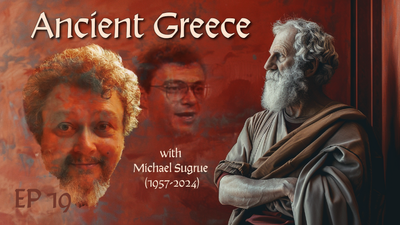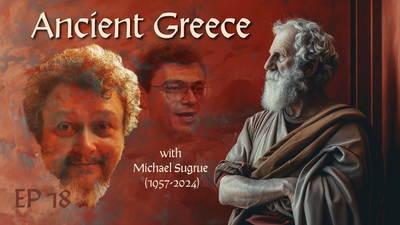Plato’s exploration of political idealism is not merely a thought experiment but a profound critique of governance and human nature. In The Republic, he envisions a society ruled by philosopher-kings, arguing that only those who love wisdom are fit to lead. His city of reason, Kallipolis, challenges us to consider the tension between the world as it is and as it could be. But Plato also acknowledges the risks of idealism—utopias can quickly become dystopias without the right virtues and knowledge to guide them. This balance between the aspirational and the pragmatic remains a central question in politics today.
Concrete examples of political idealism versus realism abound throughout history. From the French Revolution’s pursuit of liberty, equality, and fraternity to the compromises made in the United States’ founding Constitution, the gap between philosophical ideals and political practice is a persistent challenge. In The Republic, Plato uses the analogy of the ship of state to illustrate this dilemma. Just as a skilled navigator is needed to steer a ship safely, so too is a wise leader essential to guide a society. But what happens when those in power prioritize ambition or flattery over genuine wisdom?
The legacy of Plato’s idealism invites us to reflect on our own political systems. Are today’s leaders more concerned with maintaining power or serving the greater good? At planksip.org, we explore these questions with a community of thinkers inspired by Plato’s timeless inquiries. Join us in personifying the ideals worth striving for, as we collectively imagine what a just society could look like.
From the Archives of Ancient Greece: Featuring Dr. Michael Sugrue
Dr. Michael Sugrue’s analysis of political idealism in The Republic is a masterclass in understanding Plato’s nuanced approach to governance. Sugrue explores how Plato constructs his city of reason, emphasizing that this ideal state isn’t merely about strict rules or authoritarian control. Instead, it’s an attempt to harmonize different parts of society under the guidance of those best equipped to understand justice and truth. Sugrue draws compelling parallels between Plato’s vision and the ambitions of historical figures like Augustus in Rome or the philosopher-statesmen of the Enlightenment.
One of the key points Sugrue highlights is Plato’s insistence on philosopher-kings. Far from being a whimsical fantasy, this idea reflects Plato’s deep mistrust of unexamined power and demagoguery. Sugrue connects this concept to historical leaders who balanced their philosophical insights with political acumen. Figures like Marcus Aurelius, the Stoic emperor, embody aspects of this Platonic ideal, showing that wisdom and virtue can indeed coexist with effective governance—though not without challenges.
Sugrue’s work reminds us that Plato’s political vision is not about rigid utopianism, but about striving for a higher standard of justice. This discussion is central to the community at planksip.org, where we engage with ancient wisdom to reflect on our own political realities. Consider joining us to explore how ideals like those of Plato can inspire practical change in modern times.
Insights from the Dialogues: Quoting Plato
In The Republic (427d-433d), Plato details the structure of the ideal state, where justice is achieved through a harmonious order of classes and the rule of philosopher-kings. One memorable passage is the analogy of the ship of state, where Plato likens a good leader to a skilled navigator who understands the stars and the sea. He contrasts this ideal with the chaotic leadership of the ignorant, who merely cater to popular desires rather than the common good. This metaphor captures the essential challenge of politics: aligning expertise with authority.
This dialogue resonates with contemporary issues. We often see leaders who, like Plato’s unskilled captains, prioritize short-term gains over long-term stability. Think of the modern political landscape, where sensationalism often overshadows thoughtful governance. In drawing these connections, Plato’s dialogues become more than philosophical exercises—they become mirrors reflecting the realities of our own times.
For those inspired by Plato’s vision, planksip.org offers a platform to discuss these ideas and explore their relevance. Together, we can delve into the nuances of governance and justice, imagining how these ancient insights can help shape a more enlightened future.
Chance and Fate: Exploring Ancient Games
In ancient Greece, oracles played a crucial role in political life, often consulted before making major decisions. This reliance on divination highlights a recognition of fate’s role in human affairs, where the uncertainties of life required leaders to seek guidance beyond their understanding. Plato’s ideal state acknowledges this unpredictability, emphasizing the need for wisdom and humility in leadership. The symbolic use of games like dice and knucklebones in rituals serves as a reminder of the role that fate and chance played in shaping political decisions.
Imagine a scene in ancient Greece: a leader contemplating war or peace, consulting the oracle at Delphi, and performing rituals with astragali (knucklebones). These rituals symbolized not only fate but the alignment of human action with divine will. The decisions made in these contexts were seen as being blessed or cursed by the gods, reinforcing the idea that fate and human agency were inextricably linked. Such rituals were not merely superstitions but reflected a deep understanding of life’s uncertainties and the weight of political responsibility.
Explore the Mystical World of Astraguli: Ancient Games of Chance with Cultural Significance.
At planksip.org, we draw from these rich metaphors to explore the complex dance between fate and choice in politics and life. We invite you to join the discussion and explore how ancient insights into fate and governance can offer new perspectives on today’s challenges.
Virtues Revisited: Practical Lessons for Today
Justice, in Plato’s philosophy, is not a static concept but a dynamic balance between the individual and the community. It requires each person to fulfill their role and contribute to the common good. In modern politics, this notion of justice often feels elusive, with self-interest and factionalism overshadowing the collective well-being. Plato’s ideal of the just state invites us to reflect on our responsibilities, not just as citizens but as human beings committed to a higher sense of purpose.
In our current era, discussions about justice often center on policy changes and legal frameworks. While these are important, Plato’s insights remind us that true justice goes deeper, requiring personal virtue and societal harmony. At planksip.org, we believe that revisiting these ancient virtues can lead to a more thoughtful and just society. Engage with us in reimagining justice, not as a distant ideal, but as a practical goal worth pursuing in our everyday lives.
Engage with Us: Reader’s Corner
What are your thoughts on Plato’s vision of the ideal state? How do you see his ideas resonating with today’s political landscape? We encourage you to share your reflections and questions on planksip.org, where the spirit of philosophical inquiry lives on. Together, let’s explore how ancient ideals can inspire modern change.
Closing Reflection: Socrates’ Enduring Legacy
Socrates, in his relentless questioning, urged us to seek the truth and question our assumptions. His legacy lives on in Plato’s writings, challenging us to reflect deeply on what makes a society just. As we explore political idealism and realism, let us carry forward this spirit of inquiry, striving for a more just and rational society. The journey towards the ideal is never easy, but as Socrates reminds us, the pursuit of wisdom is itself a noble endeavor.
This expanded newsletter aims to offer a rich and engaging reading experience, connecting ancient philosophy to contemporary themes while encouraging active participation in the ongoing conversation at planksip.org.

Plato Re-Imagined
This course offers 32 comprehensive lectures exploring most of Plato's dialogues. These lectures guide students toward a consilient understanding of the divine—a concept that harmonizes knowledge across disciplines and resonates with secular and religious leaders. As a bonus, Lecture #33 focuses on consilience, demonstrating how different fields of knowledge can converge to form a unified understanding.






